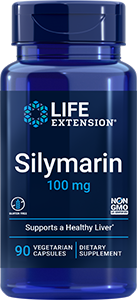Type 2 diabetes is known to shorten life span, but recent research has revealed that a medication commonly used to treat it might enable diabetics to live longer on average than those without the disease.
Writing in the journal Diabetes, Obesity and Metabolism, Professor Craig Currie of Cardiff University and his colleagues report that treatment with metformin improved survival over follow-up in diabetics in comparison with those treated with sulphonylurea drugs, as well as in comparison with untreated nondiabetics.
"What we found was illuminating," Dr Currie stated. "Patients treated with metformin had a small but statistically significant improvement in survival compared with the cohort of nondiabetics, whereas those treated with sulphonylureas had a consistently reduced survival compared with nondiabetic patients. This was true even without any clever statistical manipulation."
The study included 78,241 diabetics treated with metformin and 12,222 prescribed sulphonylureas, matched with 90,463 nondiabetic control subjects. Nondiabetics experienced a 15% lower adjusted median survival time in comparison with diabetics treated with metformin. For those receiving sulphonylurea monotherapy, median survival time was 38% lower than metformin-treated patients.
"Surprisingly, the findings indicate that this cheap and widely prescribed diabetic drug may have beneficial effects not only on patients with diabetes but also for people without, and interestingly, people with type 1 diabetes," Dr Currie observed. "Metformin has been shown to have anticancer and anti-cardiovascular disease benefits. It can also reduce prediabetics' chances of developing the disease by a third."
"This does not mean that people with type 2 diabetes get off Scott free," he cautioned. "People lose on average around eight years from their life expectancy after developing diabetes. The best way to avoid the condition altogether is by keeping moderately lean and taking some regular light exercise."








